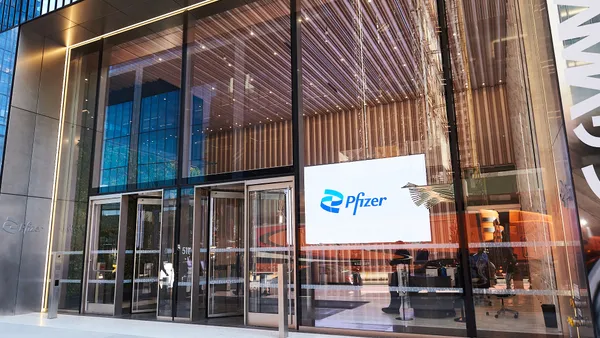Amid public protests from high-profile figures such as former AHA President Clyde Yancy, M.D., and National Institutes of Health Director Francis Collins, M.D., Ph.D., in June the Accreditation Council for Continuing Medical Education (ACCME) provided additional guidance to its 2004 Standards for Commercial Support related to the role of ACCME-defined commercial interest employees in ACCME-accredited CME. The guidance marks the second time in two years that ACCME has issued clarifications in response to questions from providers regarding under which circumstances employees of ACCME-defined commercial interests can plan, speak, and present in accredited CME. In a written statement released with the additional guidelines, ACCME emphasized its objective to support the free flow of scientific exchange while safeguarding accredited CME from commercial influence, but recognized the importance of including reporting about the discovery phase of product development, as well as the involvement of employees of ACCME-defined commercial interests in research and discovery. “We appreciate that accredited providers face complex challenges when determining how to integrate discovery and research into accredited CME while safeguarding independence and complying with ACCME requirements," the organization said in its written statement. “Together, the ACCME and accredited providers have recognized that there are circumstances where an employee of an ACCME-defined commercial interest can make a scientific presentation within accredited CME about his or her company’s research, and be compliant with the ACCME Standards for Commercial Support." Following the release of ACCME’s clarifications, the AHA reopened the speaker submissions process for its 2010 scientific sessions to all interested researchers, including those affiliated with pharmaceutical companies and other commercial interests. “We have completed in-depth discussions with the ACCME, and ACCME has agreed that AHA’s extensive internal controls and peer review assure independence from industry and are appropriate for CME accreditation for a scientific meeting," the AHA notes on its website. “Thus, there will be no variance from past Scientific Sessions/ReSS, and CME will be available for all presentations within the scientific program." Physician, Watch Thyself As evidenced by the speaker-ban backlash, many physicians bristle at the idea that they need to be told how to separate industry hype from objective research. Experts believe most physicians are quite capable of sorting out the marketing biases presented by pharmaceutical companies from the scientific evidence supporting the recommendations made by the industry. In an effort toward policing themselves in the CME arena, a number of physician organizations are drafting their own rules for working with commercial interests. In April, the Council of Medical Specialty Societies (CMSS) released its own voluntary code that provides detailed guidance to medical specialty societies on appropriate interactions with for-profit companies in the healthcare sector. The CMSS Code for Interaction with Companies includes seven core principles designed to ensure that societies’ interactions with companies are independent and transparent, and that they advance medical care for the benefit of patients and populations. Some of the key guidelines outlined in the code are for member organizations to: ? Develop and publicly post policies and procedures to disclose and manage conflicts of interest among those who participate in CMSS meetings and other activities; ? Disclose donations and support received from for-profit companies in the health sector, as well as board members’ financial and uncompensated relationships with companies; ? Develop and publicly post policies and procedures that ensure that educational programs, advocacy positions, and research grants are developed independent of industry supporters. So far, roughly half of the 32 medical professional societies represented by CMSS have signed on to the code, including the American Academy of Family Physicians (AAFP) and the American College of Cardiology (ACC). “CMSS is committed to encouraging and supporting a culture of integrity, voluntary self-regulation, and transparency," observes James Scully Jr., M.D., president of CMSS and CEO of the American Psychiatric Association. “This code provides a clear benchmark for maintaining integrity and independence." “The private sector plays a central role in developing new treatments and medical advances, and medical societies collaborate with industry in many ways that benefit medical practice," adds Norman Kahn Jr., M.D., executive VP and CEO of CMSS. “We developed this code to ensure that those relationships are appropriate, and to ensure public confidence in our objectivity and commitment to high-quality care." Going forward the industry, physicians, and CME providers will also come to terms with the evolving landscape of comparative effectiveness research (CER), the goal of which is to improve health outcomes based on evidence-based information. According to experts at Ogilvy CommonHealth, pharmaceutical and device manufacturers have a significant opportunity to demonstrate innovation and support rational public health policies. In the process, CER may open up opportunities for enhanced coverage or reimbursement for innovative products demonstrating superior results compared with existing options or satisfying unmet needs, especially in severe conditions or diseases with high patient advocacy. Due to its very nature, CER may allow superiority claims and make direct-to-consumer campaigns more effective. Medical education groups will have a great opportunity to partner with pharmaceutical and device manufacturers to educate the decision makers and the general public about the nuanced value of CER. (For more information about the ramifications of comparative effectiveness research on medical education and other industry sectors, please see the Ogilvy CommonHealth VIEW.) Who Should Pay the Bills? The University of Michigan Medical School (UMMS) made headlines this summer when it formally announced it will no longer accept industry funding of its CME programs as of Jan. 1, 2011, in an effort to dispel the risk or appearance of conflict of interest. UMMS based the decision on a review of literature about the influence on clinical faculty of industry-funded CME. The UMMS decision reverberated through the life-sciences community, with pharmaceutical industry advocates and physicians questioning whether a complete ban on pharma funding of CME is truly in the best interest of doctors. In a recent blog entry, Peter Pitts, founder and president of the Center for Medicine in the Public Interest, posited that UMMS might seek to replace some or all of its current estimated $1 million in industry CME funding with state money – a burden the cash-strapped Michigan government can ill-afford. Regardless of whether the funding comes through, the university already has indicated its intent to cut back the number of CME courses, Mr. Pitts said. “We should all pay attention to our nomenclature: it’s not about ‘conflict of interest,’ it’s about ‘interest’," Mr. Pitts said in his recent post to CMPI’s blog, Drugwonks.com. “When it comes to CME and ‘interest,’ we need to weigh it against benefit. And, as with drugs and devices, we must consider the ‘safe use’ of industry-sponsored CME." In his popular blog, KevinMD.com, New Hampshire-based internal medicine physician Kevin Pho, M.D., predicts that without industry support, medical schools will likely shift the CME cost burden to doctors in the form of higher course fees, and to medical societies in the form of increased conference expenses. “There has to be a solution short of a total ban, because the CME industry is a billion-dollar business, and there’s simply too much money at stake," Dr. Pho says. One possible answer lies in the announcement by the Stanford University School of Medicine earlier this year that it is accepting a three-year, $3 million grant from Pfizer to design and implement a curriculum without any conditions or company involvement. The grant is part of Stanford’s new, industry-funded model for the continuing education of physicians that aims to improve patient care while ensuring that corporate donors do not exert influence over the curriculum. In announcing the grant, Robert Jackler, M.D., associate dean for postgraduate education, said Stanford believes the education of practicing physicians should be based solely on the best scientific evidence presented in a fair and balanced way. “Unfortunately what’s happened is that the partnership with industry has led CME astray, to the point where the curricula are too often biased toward business interests," Dr. Jackler explains. “So we set out to see if industry would be willing to partner with us to create a high-quality curriculum, under the condition that Stanford faculty would choose the topics and design the curriculum independent of the relationship with industry. We sought not to prevent partnerships with industry, but rather to redefine it." Adds Medical School Dean Philip Pizzo, M.D.: “We continue to believe that robust relations between academia and industry are essential to translating knowledge from research to patients. And we believe that academia and industry have much to learn and teach each other." In the Stanford statement, Freda Lewis-Hall, M.D., senior VP and chief medical officer for Pfizer, observed that the company has a long tradition of funding CME. Pfizer was one of the first large pharmaceutical companies to redirect its CME funding from third-party medical education communication companies (MECCs) to academic institutions and other nonprofit entities such as hospitals, academic medical centers, schools of nursing or pharmacy, professional societies, and associations. “We’ve pioneered approaches that ensure the independence of the academic institutions designing and delivering CME curricula," Dr. Lewis-Hall says “Our multiyear support of Stanford’s efforts demonstrates our willingness to help redefine how CME is funded so that practicing physicians can get access to the latest science, presented in ways that unquestionably put the interests of the patient first and foremost." F PharmaLinx LLC, publisher of the VIEW, welcomes comments about this article. E-mail us at [email protected]. Guidelines for pharmaceutical industry involvement in continuing medical education (CME) continue to shift and evolve as physicians, educators, and industry advocates struggle to balance the need for funding and objectivity with the desire to provide practitioners with the latest medical knowledge and high-quality therapeutic research. The latest tweak to the pharma-CME relationship occurred in response to the outcry sparked by the American Heart Association’s announcement earlier this year that it would not allow pharmaceutical industry employees to make medical education presentations at its annual Scientific Sessions meeting. The education of practicing physicians should be based solely on the best scientific evidence presented in a fair and balanced way. Dr. Robert Jackler Stanford University School of Medicine Refining the Formula We’ve pioneered approaches that ensure the independence of the academic institutions designing and delivering CME curricula. Dr. Freda Lewis-Hall Pfizer The biggest impact of CER in the United States will be on individual patients as we move from one-size-fits-all medicine to individualized medical options. It will become incumbent on pharma to design studies addressing opportunities for more clinically differentiated end points. In June 2010, the most recent clarifications, were added by the The Accreditation Council for Continuing Medical Education (ACCME) to its standards for ensuring continuing medical education (CME) activities remain free of commercial influence. These clarifications were a result of discussions between ACCME and accredited CME providers as to the role employees of commercial interests focused on research and discovery should play in CME activities. The guidelines maintain that employees of commercial interests can serve as planners or speakers in accredited CME activities only if the content of CME that the employee of the commercial interest controls is unrelated to the business lines and products of its employer. The June revisions go on to clarify the types of content considered to fall within these guidelines. For example, content that teaches about the scientific or discovery process itself falls within these guidelines, as does reporting research results that are considered at the level of biology or physics, but aren’t product-specific. In addition, participating in CME beyond the scope of the firm — such as a person from a device manufacturer who volunteers with a specialty society to develop a program on disaster management — is considered within accepted ACCME guidelines. Another clarification added in June is that accredited CME can include oral or written reporting of scientific research conducted by ACCME-defined commercial interests as long as the CME activity in which the research is presented complies with ACCME’s accreditation criteria, including the ACCME Standards for Commercial Support. The CME content itself cannot be controlled by a commercial interest; industry employees cannot deliver oral presentations and cannot author enduring materials that are accredited CME if the CME content relates to business lines or products of their employer unless the accredited provider takes complete control of the content of the oral or written presentation through external review and validation processes. The June clarifications also note that education on medical devices is a special use case in accredited CME. Because some equipment contains labeling requirements set by the FDA that include the requirement for instruction prior to use, each set of circumstances need to be taken on a case-by-case basis. Industry employees must only demonstrate the operational aspects of the use of a device under the umbrella of a provider’s ACCME accreditation, without contributing in any way to any decision-making about a specific company or brand, per ACCME Standards for Commercial Support. ACCME cautions that remaining compliant in these special use cases requires careful supervision by the accredited provider’s faculty and staff, and proper professional behavior by industry staff. Source: The Accreditation Council for Continuing Medical Education (ACCME). For more information, visit accme.org ACCME Gives More Guidance for Industry CME Involvement Cadent Medical Communications 1707 Market Place Blvd. Suite 350 Irving, TX 75063 Phone: 972-929-1900 Fax: 972-929-1901 www.cadentmed.com Full-Service Medical Communications Company Cadent Medical Communications is a high science fully integrated medical education agency who partners with our customers to meet their objectives. We have a passion and deep expertise in specialty markets, such as: oncology, HIV, immunology and the central nervous system. Contact us at [email protected] to learn more about us and what we can do for your brand. The CBCE 1707 Market Place Blvd. Suite 370 Irving, TX 75063 Phone: 214-260-9024 www.theCBCE.com Accredited Provider of Continuing Medical Education CBCE™ (The Center for Biomedical Continuing Education) is a full-service provider of accredited CME/CE. Since 1999, we have partnered with clinical experts in solid tumors and hematologic malignancies to develop and implement local, regional, national and international medical education initiatives designed to accelerate the adoption of best practices and clinical breakthroughs in oncology. MedscapeCME 370 Seventh Ave. Ste. 1101 New York, NY 10011 Phone: 212-301-6700 www.medscapecme.com Accredited Provider, Online Education Leader Medscape LLC is an ACCME ANCC, and ACPE accredited provider with a fully dedicated editorial staff that develops and publishes independent educational content on 33 specialty-focused Web sites. Medscape LLC reaches the largest online community of US healthcare professionals including 500,000 physicians, and conducts outcomes studies to measure the effectiveness of its activities. In 2009, MedscapeCME generated over 6 million completed CME/CE activities. Ogilvy CommonHealth Worldwide 400 Interpace Pkwy. Parsippany, NJ 07054 Phone: 973-352-1000 www.ogilvychww.com An Overwhelming Advantage Ogilvy CommonHealth Worldwide gives brands an overwhelming advantage by telling a consistent, compelling story across the many influencers of today’s healthcare dialogues and decisions. We offer best-in-class talent in each communications channel, coupled with a cross-discipline perspective that is shared by every member of our organization — a formula that redefines best-in-class thinking. The Ogilvy CommonHealth Worldwide model of surrounding a brand with channel expertise is designed to support our clients’ efforts to break through the crowded marketplace with innovative, category-dominating solutions. We’re organized this way to help our clients thrive, so their brands can outperform competitors in the new healthcare arena. Selva an inVentiv health company 60 Railroad Place, Suite 300 Saratoga Springs, NY 12866 Phone: 866-735-8247 Fax: 614-839-7331 www.theselvagroup.com Communication Beyond Words Selva is a full-service medical education and event management company focused on partnering with our clients on their commercialization objectives. We have earned our reputation as an industry leader in strategy, advocacy, content, and meeting development and implementation. Pharmaceutical clients engage Selva to: • Build and strengthen relationships with key opinion leaders (KOLs) • Solicit insight from KOLs or customers • Train engaged speakers • Heighten awareness of disease states or products • Educate healthcare professionals on appropriate diagnosis and treatment strategies The combination of our strategic insights, scientific expertise, and passion for flawless execution allows us to offer clients clinically relevant solutions to their medical education needs. SK&A A Cegedim Company 2601 Main St., Ste. 650 Irvine, CA 92614 Phone: 949-476-2051 Fax: 949-476-9131 www.skainfo.com Setting the Standard for Data Quality SK&A is a leading provider of healthcare information solutions and databases. We research and maintain contact and profiling data for more than 2 million healthcare providers, including 830,000 prescribers. Our information supports client initiatives for: continuing medical education, recruiting, direct marketing, pharmaceuticals, medical devices, managed healthcare and publishing. SK&A’s proprietary databases are telephone-verified twice per year from our headquarters in Irvine, CA. SK&A enables multi-channel marketing and sets the standard for data quality and reliability.
An article from


View on Med Ed: Refining the Formula
Filed Under:
Commercialization










